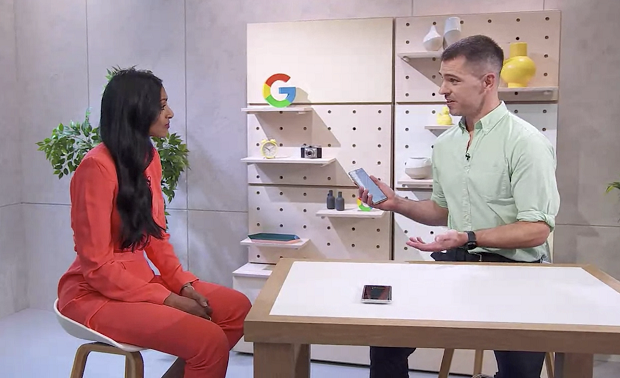At the Google@Inventors conference last Nov. 11, Google’s engineers and developers gave a preview of latest technologies and the innovators behind them.

The event zeroed in how technology is being used to tackle present and future problems — from apps still in development to a tour of its quantum computing lab. Most of Google’s featured inventions focused on representation and accessibility.
Marian Croak, Google’s VP of Engineering for Responsible AI and Human Centered Technology and a key inventor involved in the voice over Internet protocol, kicked off the event by explaining how her team is improving the technology involved in capturing people over video call.
By developing a more nuanced auto-white balance, improving auto exposure, and reducing stray light, they aim to deliver video quality that will truly represent people with darker skin colors.
The event then segued into Andrew Brennan’s demonstration of Google’s Pixel 6’s Live Translate feature. Using advanced speech and language models, this smartphone feature can smash language barriers. It instantly translates one language into another by reading the text on screen in chat apps or interpreting conversations in real-time.

Still related to speech, the next innovation or the Project Relate mobile app intends to empower those with speech impairments to communicate more easily.
Product manager of Google AI, Julie Cattiau, and branding manager of naming, Aubrie Lee, described how this app utilizes machine learning to familiarize itself with atypical speech patterns.
Once it has generated a user’s custom speech model, the app can listen and understand its user’s spoken English words as well as repeat the words back in a clear, computerized voice. It can even connect directly to Google Assistant.

Accessibility is also a primary concern for another industry: breast cancer screening. Breast cancer screening to detect tumors early is linked with improved cancer outcomes. Unfortunately, one of the challenges preventing breast cancer screening from being provided in an accurate and timely manner is the lack of specialist staff to look at the mammograms.
Dr. Susan Thomas, clinical director of Google Health UK, discussed how Google is employing artificial intelligence (AI) to support clinicians in detecting breast cancer.
Their research has shown that their technology can detect breast cancer as effectively as radiologists, and they’re presently partnering with several UK organizations to test it out in real-world clinical settings.
“What this is about really is building intelligent assistants for doctors and patients,” enthused Dr. Alan Karthikesalingam, research lead for Clinical Health AI in Google Health UK.
“We really hope that AI can build incredibly impactful tools that give doctors and patients back this gift of time so that more time, more energy, can be spent on the complex decision making that lies at the heart of this doctor-patient relationship.”

Moving on from accessibility, Google software engineer Sella Nevo stressed the importance of disaster risk management by sharing updates on its Flood Forecasting initiative that began in 2018.
In this initiative, Google has been working with the Indian and Bangladeshi governments to provide early warnings for citizens in flood prone areas. Using AI-driven simulations based on government data, they send flood forecasts to these residents through Google Search, Google Maps, and Android notifications.
In 2021, the initiative’s operational systems were expanded to encompass an area with over 360 million people from an area of 220 million people. Additionally, 115 million alerts were sent out, which was more than triple the amount of alerts sent previously.
Additionally, Nevo disclosed that the challenge currently facing this initiative is sending their notifications to areas without Internet access.

Another exciting field being explored by the tech giant is quantum computing through its Quantum AI Campus in Santa Barbara, California. Eric Lucero, lead engineer at Google Quantum AI, led a tour through the lab.
While current quantum computers are prone to error, Lucero shared that because quantum mechanics underlies nature, quantum computer development is being prioritized because they have a better chance at modelling nature. Thus, they can potentially help people invent lighter and more efficient batteries, more carbon-efficient fertilizer, or even improve AI.
“A new tool begets new ideas,” stated Lucero. “It’s not just that these quantum computers are faster at like particular problems, it’s that they’re fundamentally computing in a different way.”

Lastly, Google reminded users that technology could be applied to light-hearted purposes too. For all the pet lovers out there, Brennan demonstrated a new feature in their Culture and Arts app called Pet Portraits.
With this feature, users can upload pictures of their pets and through machine learning, the app will find the pet’s doppelgänger amidst thousands of artworks.
Croak reiterated in a recorded message before the event that it is the drive to solve problems that inspires her as an inventor.
“I want to change the world for a better place. So, you know, I turn on the switch in my head and just think, okay this is going on but what can fix it? What would be the solution to this problem? It’s a wonderful feeling to be able to be creative in looking at a problem and trying to figure out how to solve it.”




